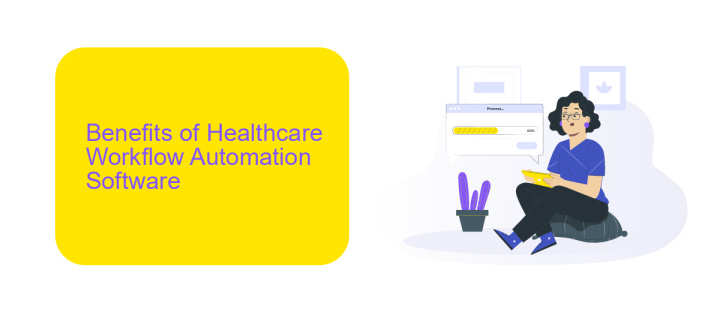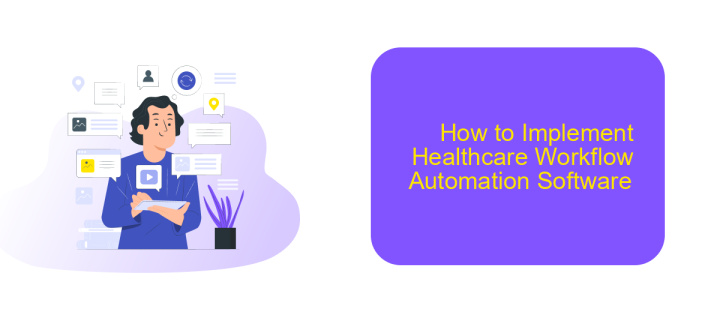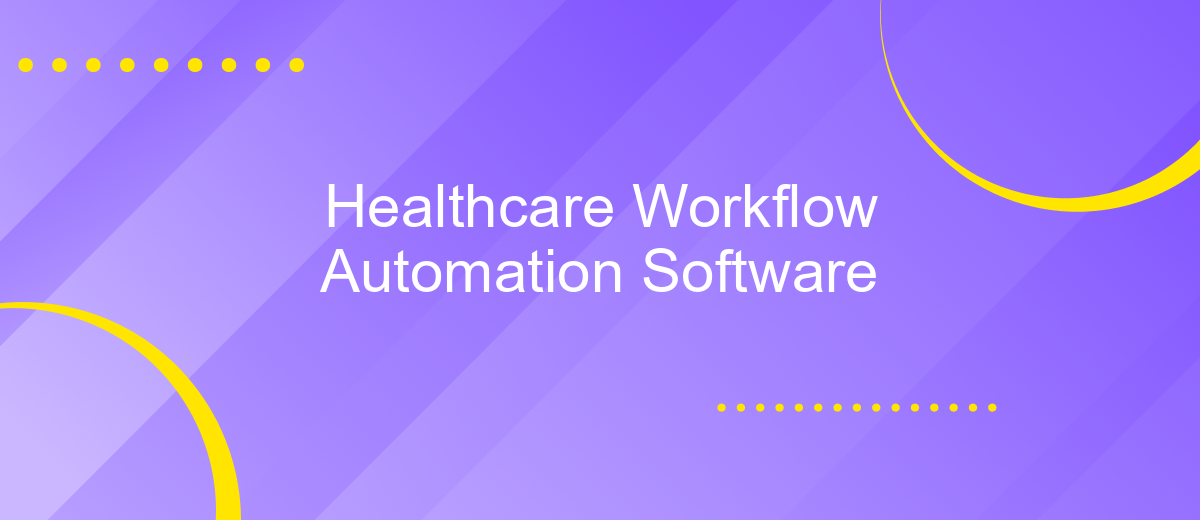Healthcare Workflow Automation Software
In today's fast-paced healthcare environment, efficiency and accuracy are paramount. Healthcare Workflow Automation Software streamlines administrative and clinical processes, reducing human error and freeing up valuable time for medical professionals. By automating repetitive tasks, this technology enhances patient care, boosts operational efficiency, and supports better decision-making. Discover how healthcare automation can transform your practice and improve overall outcomes.
Introduction
In today's fast-paced healthcare environment, the need for efficient and streamlined processes is more critical than ever. Healthcare workflow automation software aims to reduce administrative burdens, improve patient care, and enhance operational efficiency. By automating repetitive tasks and integrating various systems, healthcare providers can focus more on patient outcomes rather than paperwork.
- Reduces administrative workload
- Enhances patient care and safety
- Improves operational efficiency
- Facilitates seamless integration of systems
One of the essential components of effective healthcare workflow automation is the ability to integrate multiple systems seamlessly. Tools like ApiX-Drive provide powerful solutions for setting up and managing integrations, ensuring that data flows smoothly between different platforms. By leveraging such services, healthcare providers can achieve a more cohesive and efficient workflow, ultimately leading to better patient outcomes and reduced operational costs.
Benefits of Healthcare Workflow Automation Software

Healthcare workflow automation software significantly enhances operational efficiency by streamlining repetitive tasks and reducing human error. By automating administrative processes such as patient scheduling, billing, and data entry, healthcare professionals can focus more on patient care rather than administrative duties. This not only improves the quality of care but also increases patient satisfaction and reduces burnout among healthcare staff.
Another key benefit is the seamless integration of various healthcare systems and applications. Tools like ApiX-Drive facilitate the integration process, allowing different software to communicate effectively without manual intervention. This ensures that patient data is consistently updated across all platforms, minimizing discrepancies and enhancing data accuracy. Additionally, automated workflows can improve compliance with healthcare regulations by ensuring that all necessary documentation and procedures are followed meticulously.
Key Features of Healthcare Workflow Automation Software

Healthcare Workflow Automation Software is designed to streamline and optimize various processes within healthcare organizations, enhancing efficiency and reducing manual workload.
- Task Automation: Automate routine tasks such as appointment scheduling, patient reminders, and billing processes to save time and reduce errors.
- Data Integration: Seamlessly integrate with existing healthcare systems and databases to ensure real-time data synchronization and accessibility.
- Compliance Management: Ensure adherence to regulatory standards and protocols, reducing the risk of non-compliance penalties.
- Customizable Workflows: Tailor workflows to meet the specific needs of different departments and roles within the organization.
- Reporting and Analytics: Generate detailed reports and analytics to monitor performance, identify bottlenecks, and make data-driven decisions.
- ApiX-Drive Integration: Use ApiX-Drive to set up and manage integrations with various third-party applications and services, simplifying the automation process.
By incorporating these key features, healthcare workflow automation software can significantly improve operational efficiency, enhance patient care, and ensure compliance with industry standards. The ability to customize workflows and integrate seamlessly with existing systems makes it a versatile tool for any healthcare organization.
How to Implement Healthcare Workflow Automation Software

Implementing healthcare workflow automation software begins with a thorough assessment of your current processes. Identify areas where automation can bring the most significant improvements in efficiency and patient care. Engage key stakeholders, including IT staff, healthcare providers, and administrative personnel, to gather insights and set clear objectives.
Next, select a suitable software solution that aligns with your needs and integrates seamlessly with your existing systems. Consider factors such as user-friendliness, scalability, and support services. Ensure the software complies with healthcare regulations like HIPAA to protect patient data.
- Conduct a pilot test to identify potential issues and gather feedback.
- Train staff to ensure they are comfortable using the new system.
- Use integration services like ApiX-Drive to connect various applications and streamline data flow.
- Monitor the system continuously to make necessary adjustments and improvements.
Finally, evaluate the impact of the automation on your workflow regularly. Collect data on key performance indicators such as time saved, error reduction, and patient satisfaction. Use this information to refine your processes and maximize the benefits of the automation software.
Conclusion
Healthcare workflow automation software has revolutionized the way medical institutions operate, significantly enhancing efficiency and reducing human error. By automating routine tasks, healthcare providers can focus more on patient care, leading to improved outcomes and patient satisfaction. This technology not only streamlines administrative processes but also ensures compliance with regulatory standards, thereby fostering a more reliable healthcare environment.
Furthermore, integrating various healthcare systems can be a complex task, but services like ApiX-Drive simplify this process. ApiX-Drive enables seamless integration of different software solutions, ensuring a smooth and uninterrupted workflow. By leveraging such services, healthcare organizations can achieve a higher level of interoperability, making data more accessible and actionable. In conclusion, adopting healthcare workflow automation software, complemented by robust integration tools, is a strategic move towards a more efficient and patient-centric healthcare system.


FAQ
What is Healthcare Workflow Automation Software?
How can Healthcare Workflow Automation Software benefit my practice?
What features should I look for in Healthcare Workflow Automation Software?
How difficult is it to implement Healthcare Workflow Automation Software?
Can Healthcare Workflow Automation Software integrate with my current systems?
Apix-Drive is a universal tool that will quickly streamline any workflow, freeing you from routine and possible financial losses. Try ApiX-Drive in action and see how useful it is for you personally. In the meantime, when you are setting up connections between systems, think about where you are investing your free time, because now you will have much more of it.

